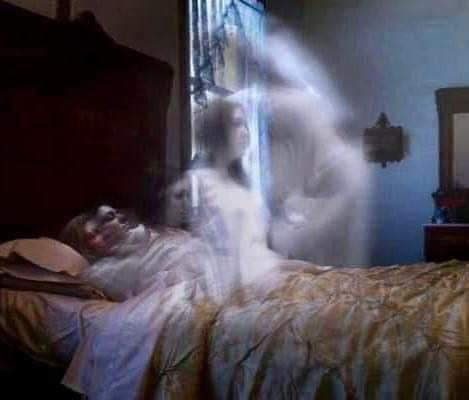There are individuals who don’t dream, or if they do, they might not be able to recollect them.
Dreams have been a subject of debate regarding their significance. Many believe dreams to be messages from unseen forces, while others argue that they are merely a product of brain activity.
While we are asleep, our brains are anything but.
Dreams can serve as a mirror of our daily experiences or as a manifestation of our deepest anxieties. However, the significance of dreaming about someone who has passed away remains a mystery.
The dreams may be interpreted as a component of the grieving process or as a transformation occurring within our own lives. As per Healthline, it is related to the latter.

It is typical to have these dreams when undergoing specific transitions, like starting a new job, relocating, or forming new relationships.
The most crucial aspect is not the dream itself, but rather the emotions it evokes within us.
Rubin Naiman, a psychology Ph.D., dedicated years to researching sleep patterns and habits. He believes that… “Dream interpretation is about decoding the dream. It enlightens us and expands our awareness psychologically, [offering an] expansion of consciousness.”
Dreaming about a deceased individual could be connected to the aforementioned changes and their impact on us.

Numerous contemporary neuroscientists suggest that the brain performs maintenance tasks during REM sleep, inadvertently causing visual disturbances known as ‘kicking up dust.’ As a result, they regard dreaming as having no real meaning. In contrast, others argue that dreaming is more significant than wakefulness. This belief is exemplified in ‘dream cultures,’ such as that of the indigenous Australians, who consider dreaming as an integral part of our spiritual existence.
Experts place these dreams into four categories.
- Initially, dreaming about a deceased individual could be seen as the mind’s way of processing the grief from the loss.
- Failing to reconcile with a deceased individual prior to their passing could lead to feelings of guilt, potentially resulting in them appearing in our dreams.
- Lauri Loewenberg, a dream analyst, suggests that if we notice certain behaviors in ourselves, like substance abuse, we may be dreaming of a deceased person who exhibited those behaviors.
- Some specialists argue that these dreams symbolize a visit from a deceased individual, particularly if they appear in a positive state in our dream, such as being well-dressed or appearing joyful. Feeling positive about the dream could indicate that the deceased individual is saying ‘Hello’.

Regardless of our personal beliefs about dreams, it is undeniable that they hold significant and profound meaning. Dreams frequently provide us with a glimpse into the depths of our soul and our relationship with those who have passed away.
Please SHARE this article with your family and friends on Facebook.







